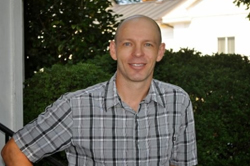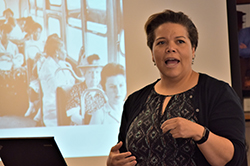Podcast Series: Plan to Talk
W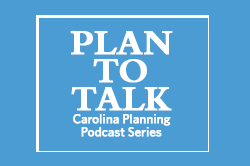 elcome to the Carolina Planning Plan to Talk Podcast Series, where we profile fascinating people connected to the Department of City and Regional Planning at The University of North Carolina at Chapel Hill.
elcome to the Carolina Planning Plan to Talk Podcast Series, where we profile fascinating people connected to the Department of City and Regional Planning at The University of North Carolina at Chapel Hill.
UNC’s Department of City and Regional Planning (DCRP) is entering its eighth decade of producing leaders in the planning and development field. In this podcast series, we talk with faculty about the pillars of their work in teaching, service and research. Alumni tell us about their experiences having led transit systems, built affordable and market-rate housing, and run planning departments across the United States and beyond. The work of faculty, graduates, and current students shapes the communities and regions where we live and is critical to addressing societal challenges including congestion, air pollution, housing affordability, and inequality.
Let’s listen to their stories:
We begin the series by introducing ourselves and announcing our upcoming Godschalk Symposium, on September 28th. For nearly 40 years, Dr. David Godschalk shaped how generations of planners and academics understand and respond to climate change, natural disasters and emerging land use issues. We invite you to join the College, Carolina Planning and Dave’s family for an extraordinary event to honor his legacy on Friday, September 28, 2018 at the Rizzo Center in Chapel Hill, from 1 – 8 PM.
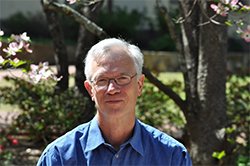 Plan to Talk – Episode 1: Colleagues and friends for decades
Plan to Talk – Episode 1: Colleagues and friends for decades
We talk with former DCRP faculty member, and now Professor in the Department of Landscape Architecture and Urban Planning and Director of the Institute for Sustainable Communities at Texas A&M. . They researched together, they wrote together, Dr. Berke describes their time together and some of the important lessons he learned from Dave Godschalk.
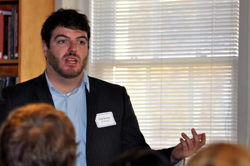
Plan to Talk – Episode 2: Bringing the latest research to class
We talk with Todd BenDor, Carolina Planning Professor and Director of the Ph.D. program. His research studies the intersection of urban and regional growth and efforts to mitigate impacts to sensitive ecosystems, and he teaches courses in watershed planning, impact assessment, and system dynamics modeling. We ask him how he got into planning, what projects he’s currently working on and how he brings his research into the classroom.
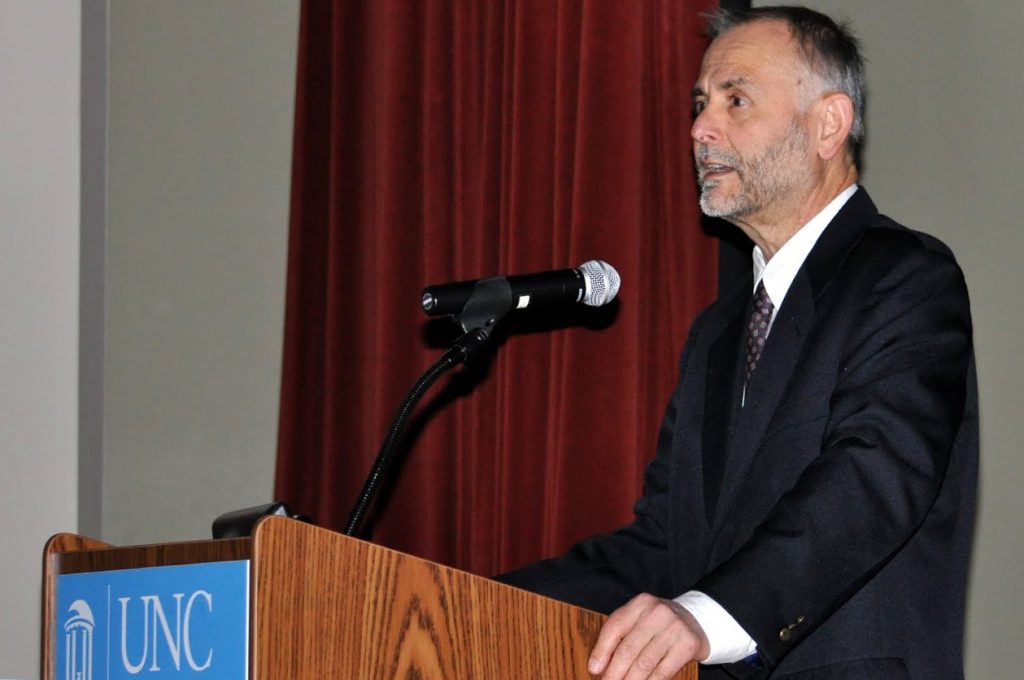 Plan to Talk – Episode 3: Discussing homeownership education and student financial counseling
Plan to Talk – Episode 3: Discussing homeownership education and student financial counseling
We talk with Carolina Planning’s Roberto Quercia, Trudier Harris Distinguished Professor and Director of UNC Center for Community Capital. Roberto is a mortgage finance expert who leads major research projects in the areas of low-income homeownership, mortgage lending & predatory lending. He teaches courses in housing and public policy, real estate investment and affordable housing & personal finance and wealth building. We ask him how he got into planning, what projects he’s currently working on and how he brings his research into the classroom.
We talk with Carolina Planning’s Allie Thomas, Associate Professor in Transportation Planning. As a new faculty member, we ask her what attracted her to Carolina Planning, how she’s settled in the the department and learn more about how the South has defined her research agenda. The field of transportation planning is undergoing dramatic changes, listen to the podcast to learn more about the fresh perspective Dr. Thomas brings to Carolina Planning.
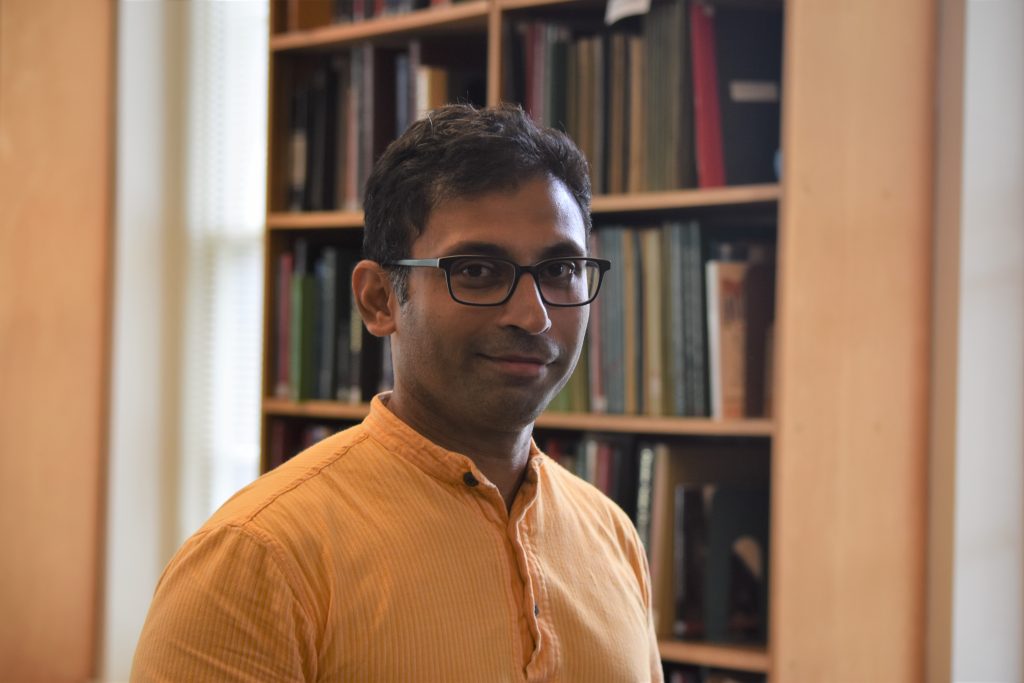
Plan to Talk – Episode 5: We learn about energy planning
We talk with Nikhil Kaza, Associate Professor, Land Use and Environmental Planning. Dr. Kaza works at the intersection of urbanization patterns, local energy policy, and equity. He takes an interdisciplinary approach to studying how institutional innovations help or hinder cities, and the differential impacts felt by various groups. We ask him how he got into planning, what projects he’s currently working on and how he brings his research into the classroom.
